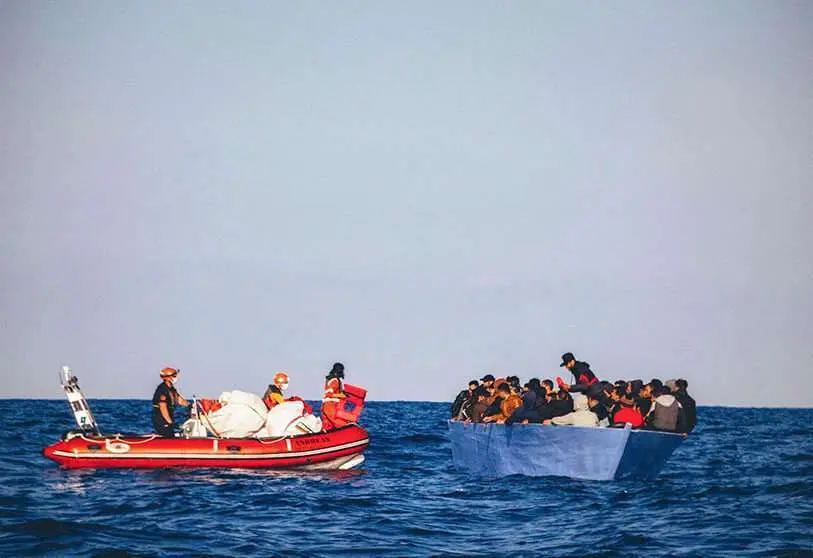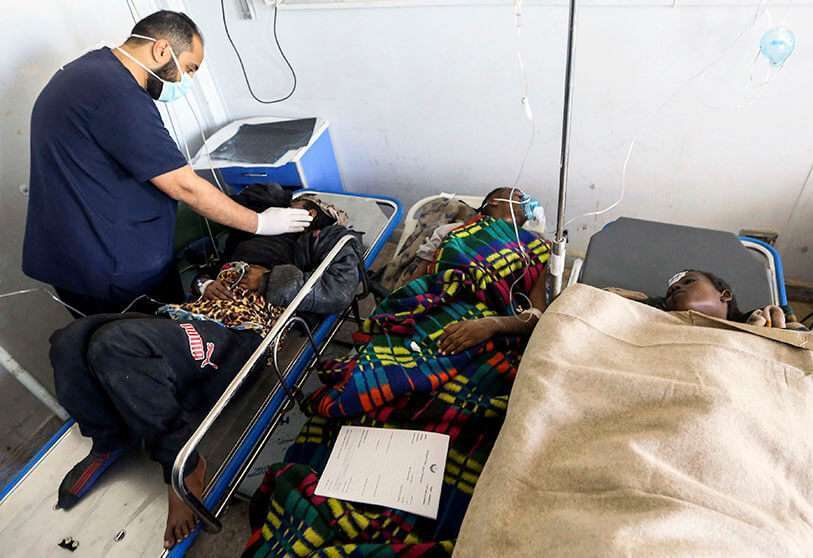Fundación Alternativas: "The EU should not leave the protection of human rights in the hands of third countries"

What are we talking about when we talk about migrants, migration and migration policies? What risks were hidden in the migration agreement between the European Union and Turkey? What effects has COVID-19 had on human mobility? This Thursday, Fundación Alternativas tried to offer some answers to these complex questions during the presentation of the document 'Migratory flows in the Mediterranean: causes, policies and reform'.
The meeting - which analysed the main dynamics of migratory flows in the Mediterranean in recent months - was moderated by Itxaso Domínguez de Olazábal, coordinator of the Middle East and North Africa Panel of Fundación Alternativas. "From the Foundation we have tried to combine aspects of Spanish foreign policy and international relations with the public policies of the European Union", she said at the beginning of this event.
The first chapter of this document is written by Beatriz Mesa, professor and researcher at the International University of Rabat, who examines the main causes of intra- and extra-continental migration in Africa. "Mobility is a way of life in Africa", she said after stating that "we are at a time when we have to talk more about mobility and not so much about migration". "In this document I have explained not so much the effects or repercussions, but rather the origin or causes, that is to say, what pushes so many citizens to leave their homes, to risk their lives, to bring together the whole family and to create a new life project in a different country", she said.
During her speech she also defended that extra-continental migration is not related to poverty and hunger, but rather to prosperity or the ambition to find a better job or change their living conditions. Beatriz Mesa is committed to supporting the agricultural sector in order to create new job opportunities or to sending teams to the field to monitor the aid granted by the European Union.
However, in this chapter she has also highlighted some of the main changes in these migratory flows. "Although in the last two decades there has been talk of young migrants, there is an increase in the feminization of migratory routes, as has been observed during the empirical work on the frigate Navarra," she said. To conclude her first speech, she stressed that "this report is presented at a delicate time for both borders" in a scenario marked by "the disintegration of certain political systems".
For her part, Anna Terrón Cusi, Director of the International Foundation for Ibero-America in Administration and Public Policy (FIIAPP), professor at Blanquerna and former Secretary of State for Migration, wrote the prologue to this report in which she attempted to contextualise and objectively define the concepts of migration, migrant, migration policy and asylum policy. "I believe that in order to deal with migration or migration policies, it is necessary to understand all the complexity that they hide", she has underlined. "We should also abandon certain prejudices that we have regarding this issue. If we think that migrants are all poor we are already adding a connotation to the issue in a certain way", she explained.
"The definitions of migrant and migration that we use, which are commonly accepted in law, are not, however, the only ones that we use in our society. In the public space, both terms can acquire as many connotations as there are prejudices in our society," she warns in the document presented this Thursday.
The third person to speak was Ruth Ferrero, Lecturer in Political Science at the Complutense University of Madrid (UCM) and researcher attached to the ICEI, who wrote the article 'Migrations in the Mediterranean: effects on the Spanish and European sphere. Public policies and future challenges'. "In my chapter I have dedicated myself to analyzing the public policies that have been designed within the framework of the EU and in Spain since 2015. I have analysed in depth how the debates and the positions have been within the framework of the Union, what solutions have been taken, what alternatives have been given, at what point we are and what perspectives we can have in the coming months with a view to the next European pact", she stressed.
Likewise, she recommended "to make a good pedagogy of the migratory fact, approaching it with all the conceptual rigor that we can". In the Spanish debate, it is necessary to emphasize and see how a migration policy from Spain can be articulated "more justly that benefits both the host societies and the people trying to integrate into those societies".

The third chapter entitled "The EU-Turkey agreement on refugees: rights, externalisation and dependence" is written by Gemma Pinyol-Jiménez, Director of Migration Policies and Diversity at Instrategies. Associate researcher at GRITIM-UPF and Marta Pérez Ramírez, consultant in the field of migration, asylum and diversity. Intercultural Cities Network (RECI), CER-Migracions (UAB-UB), CEAR.
During the presentation, Gemma Pinyol-Jiménez explained that, together with her colleague, she tried to take an instrument of the common migration policy and try to analyse it. "The declaration between the EU and Turkey on this issue is an example that serves to put some of the ills that exist on the table," she said. "This agreement allows us to point out the sickening obsession that EU countries are having with border control as the sole instrument of migration management. This means that we are not thinking about regular ways to manage mobility," she said.
For her part, Marta Pérez pointed out that "if we had to choose a headline this would be that the European Union has prioritised efficiency in the short term and has put it before the commitment to human rights and asylum". In the case of the declaration, Marta considers that it directly impacts people in need of international protection.
In the report, both authors have recommended to the European Union and to those who devote themselves to designing public policies that "develop a common European asylum system that allows for the articulation of a common response at the border and a distribution of the reception of people" and that "avoid the conditional collaboration that leaves the protection of human rights in the hands of third countries".
The crisis caused by the coronavirus pandemic has directly influenced human mobility, especially after many countries closed their borders as a preventive measure to avoid the spread of this pathogen. "Although de-escalation is already shaping its final contours in Europe, everything suggests that transnational mobility will continue to be restricted. These affect and will affect all types of migration, but it is important to distinguish between types of migrants," states this research.








